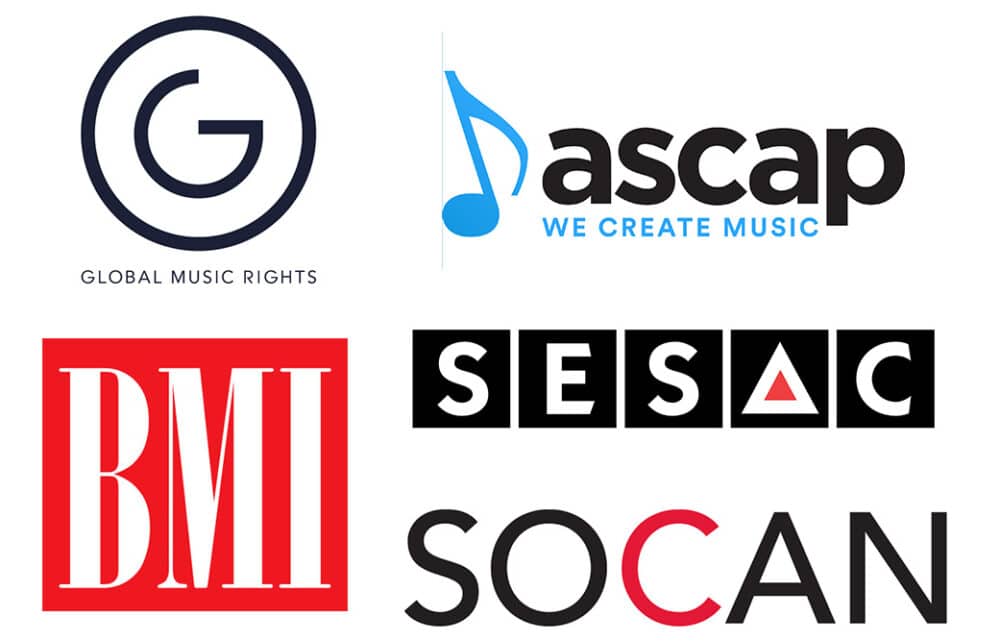Are you a business owner, event organizer, or the person handling hold music for your company? If so, it’s essential to understand the legal consequences of playing music without a license. In today’s world, where digital content is easily accessible and shared, it can be tempting to overlook the legal requirements. However, people and companies do get charged fines for playing music without a license.
In this article, we will explore the fines associated with playing music without a license and why it’s crucial to comply with copyright laws. If you’re running a business, staying informed about the legal implications can help you avoid costly penalties and protect your reputation.
- The importance of music licensing
- Understanding copyright laws and penalties
- Northern Washington bar faced thousands in fines
- How can you tell if music licensing is real or a scam?
- Types of licenses for playing music
- Consequences of Playing Music Without a License
- Legal Fines for Playing Music Without a License
- More case studies: businesses fined for playing music without a license
- How to Obtain a Music License
- Beware of "royalty-free" music
- Conclusion
The importance of music licensing
When you play music in your business without a license, you are essentially using someone else’s intellectual property without their permission. Violation of copyright laws is a serious matter. While a lawsuit is not the preferred method for collecting fees, in 2019, performance rights organization, ASCAP filed dozens of copyright infringement lawsuits.
Music licensing is the process of obtaining permission from the copyright holder to use their music in a public or commercial setting. It ensures that artists and creators are fairly compensated for their work and that their rights are protected. Obtaining a music license is not only a legal requirement, but it also supports the music industry and encourages the creation of new music.

Understanding copyright laws and penalties
Copyright laws exist to protect the rights of creators and ensure that they have control over how their work is used and distributed. Music copyright protection covers the musical composition (the melody, lyrics, and arrangement) as well as the sound recording (the actual recording of the music).
In most countries, copyright protection is automatic as soon as a work is created, and no formal registration is required. This means that whenever you play or use copyrighted music in public without a license, you are infringing on the rights of the copyright holder.
The penalties for playing music without a license can vary depending on the jurisdiction and the specific circumstances of the infringement. In some cases, fines can range from a few hundred dollars to several thousand dollars per song played. Repeat offenders may face even higher fines and, in extreme cases, criminal charges. Additionally, copyright holders may also seek damages through civil lawsuits, which can result in further financial and legal consequences.
Northern Washington bar faced thousands in fines

Surprisingly, an out-of-the-way watering hole like the Dam Bar in Port Angeles, Washington, was on the radar of the big licensing organizations. The bar owner was asked to pay up to $120,000 for playing” four songs that were sung by karaoke singers… without ASCAP’s permission,” according to The Peninsula News.
Don’t ignore requests from Performance Rights Organizations. ASCAP attempted to get the bar owner to cooperate over a period of 15 months. They settled out of court for $8500 in attorney fees and agreed to pay the required annual license fee of $912. Today, a Google search identifies the Dam Bar as “permanently closed.”
How can you tell if music licensing is real or a scam?
ASCAP, BMI and other performance rights organizations (PROs) are tasked with collecting performance rights licensing fees on behalf of music publishers. These organizations have been stepping up their collections activity, sending letters and making phone calls (in some cases showing up in person).
Music Licensing For Business: Real or Scam?
As a business, you must pay for the use of music even if you don’t know which licensing organization controls the content. If you receive a letter, follow these tips:
- Legitimate PRO licensing requests will come in the mail, in writing
- You will be given an account number for reference
- Call ASCAP at 1-800-505-4052, BMI at 800-925-8451, and SESAC at 1-800-826-9996. Provide the account number and your business name as a test
- If you are in Canada, contact SOCAN at 1 866-944-6210
Types of licenses for playing music
There are different types of licenses available for playing music, depending on the context and the specific rights you need. Here are some of the most common types of licenses:
1. Public Performance License: Required for playing music in public spaces, such as restaurants, bars, retail stores, or event venues. It covers the right to publicly perform the music and pays royalties to the copyright holders.
2. Mechanical License: If you plan to reproduce or distribute recorded music, such as making copies of CDs or digital downloads, you will need a mechanical license. This license grants you the right to reproduce and distribute the copyrighted music.
3. Synchronization License: If you want to use music in conjunction with visual content, such as online videos, you will need a synchronization license. This license allows you to combine music with visual elements.
4. Master Use License: To use a specific recording of a song, you will need a master use license. This license grants you the right to use the actual sound recording and ensures that the appropriate royalties are paid to the copyright holders.
Consequences of Playing Music Without a License
Playing music without a license can have severe consequences for your business. Playing music without a license can damage your reputation and credibility. In today’s digital age, news spreads quickly, and negative publicity can have a lasting impact on your brand. This can lead to a loss of customers, negative reviews, and a decline in revenue.
Secondly, copyright infringement can result in legal action, which can be costly and time-consuming. Defending yourself against a copyright lawsuit can drain your resources, both financially and emotionally.
Lastly, copyright holders have the right to issue takedown notices to platforms or websites hosting copyrighted content without permission. Your online presence could be affected if you have been using copyrighted music without the necessary licenses. Your content may be taken down, and you may lose access to certain platforms or face penalties imposed by those platforms.
Legal Fines for Playing Music Without a License
The fines for playing music without a license can vary depending on the jurisdiction, the number of songs played, and whether it was a first-time offense or a repeat infringement. In general, fines can range from a few hundred dollars to several thousand dollars per song played.
For example, in the United States, the Copyright Act allows for statutory damages of up to $30,000 for each work infringed. If the infringement is proven to be willful, the damages can be increased up to $150,000 per work (which means per song played). These fines can quickly add up, especially if you have been playing multiple copyrighted songs without a license.
In the United Kingdom, the fines for playing music without a license can be even higher. The Copyright, Designs, and Patents Act 1988 allows for fines of up to £50,000 per infringement. Repeat offenders can face unlimited fines and even imprisonment in some cases.
These are just legal penalties and do not include any potential damages that copyright holders may seek through civil lawsuits. Civil lawsuits can result in additional financial consequences, including payment of damages, legal fees, and court costs.
More case studies: businesses fined for playing music without a license
To illustrate the real-world consequences of playing music without a license, let’s take a look at some notable case studies:
- In 2019, a restaurant in Australia was fined AUD 30,000 (approximately USD 22,000) for playing copyrighted music without a license. The restaurant had been warned multiple times but continued to play music without obtaining the necessary permissions. The fine was a significant blow to the restaurant’s finances and reputation.
- A fitness studio was sued for copyright infringement after using popular music tracks in their workout classes without a license. The studio was hit with a lawsuit seeking damages of over $150,000 per song played. The case eventually settled out of court for an undisclosed amount, but the financial and legal implications were substantial.
- A small retail store in the United Kingdom was fined £6,000 (approximately USD 8,000) for playing copyrighted music without a license. The store had been operating for several years without obtaining the necessary permissions. The fine had a significant impact on their finances.
Ignoring the legal requirements can result in significant financial penalties and legal troubles that can have long-lasting effects on businesses and individuals.
How to Obtain a Music License
Obtaining a music license is a relatively straightforward process, although it can vary depending on your location and the specific rights you need. There are different licenses for various types of music users:
- Website or mobile app
- Bar, restaurant or nightclub
- Fitness facilities
- Broadcasting
- Dance Studio
- Church/Ministry
Here are some general steps to follow:
- For music on hold and background music in your business, contact Easy On Hold, which provides fully-licensed hold music and background overhead music by popular artists.
- For music that will be performed live, obtain licenses from ASCAP, BMI, and Global Music Rights. Those three performance rights organizations cover a majority of popular music. However, if you will be performing works that SESAC also licenses, pursue licenses with that organization as well.
- Be prepared to talk to representatives of the performance rights organizations. You’ll be asked for details about how the music will be used and whether you charge a fee for admission.
- Any music used as a basis for physical movements, such as dancing, skating, or exercise classes, will require special licensing.
- Keep accurate records of your dealings with licensing organizations.
Music licensing can be a complex and nuanced process, especially when dealing with multiple copyright holders or international rights. In some cases, it may be more practical to consult with a legal professional specializing in copyright law.
Beware of “royalty-free” music
It might be tempting to avoid licensing, especially for hold music and background music, by purchasing so-called “royalty-free” music. However, you might not be getting what you need. A so-called royalty-free hold music tracks often come with fine print prohibiting public performances. For example, “this license does not include public performance rights “. Read more in our article: Royalty Free Music: It’s Not What You Think It Is.”
What about playing original music? Original music that is not represented by any rights organization or recording company may help avoid paying for a license. Be sure not also to play copyrighted music!
Conclusion
Playing music without a license can have serious consequences, both legally and financially. The fines associated with copyright infringement can be substantial and can have a lasting impact on businesses and individuals. We hope you’ve learned the importance of music licensing. Business owners are naturally curious about the penalties for playing music without a license. They want to be in compliance with copyright laws and protect their reputation.
Our goal is to help businesses respect the rights of artists and creators. Proper licenses ensure that you are compliant with the law and support the music industry and encourage the creation of new music. So, before you press play on that copyrighted song, consider the legal consequences and make the right choice for yourself and the music community.



